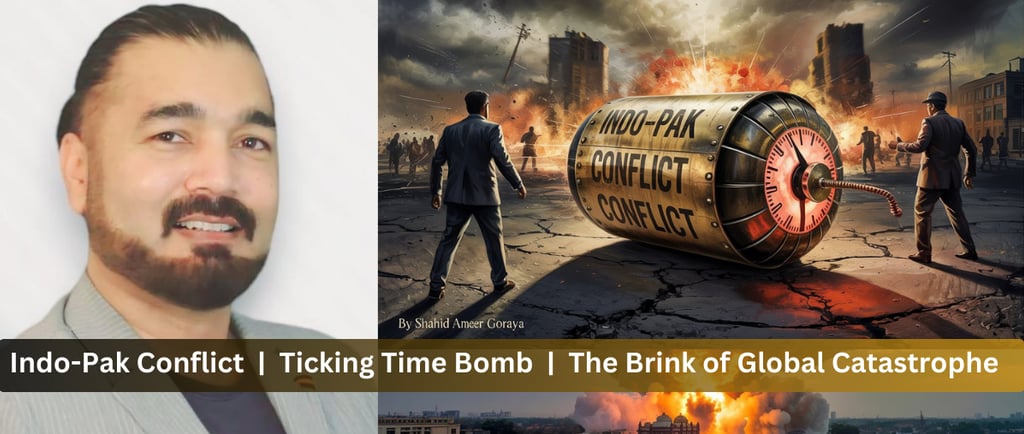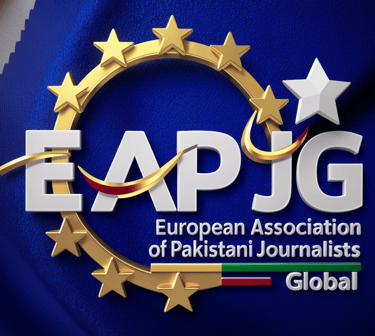
International Day of Democracy
- September 15 - We Promote Democracy and Human Rights.
Indo-Pak Conflict: A Looming Threat to Global Security Nuclear-Armed Rivals' Tensions Could Trigger Worldwide Crisis
Ticking Time Bomb | The Brink of a Global Catastrophe
INDIAN AND PAKISTAN'S AFFAIRS
By Shahid Ameer Goraya President, European Association of Pakistani Journalists Global
4/30/20252 min read


Prologue: A Valley of Blood, A World on the Edge
Pahalgam, a name that once evoked images of snow-kissed peaks and emerald meadows, now echoes with the sound of explosions. Another flare-up in Kashmir. Another round of accusations. Another wave of chest-thumping nationalism. But this isn’t just another border skirmish. This is a spark near a powder keg of nuclear weapons, religious extremism, and geopolitical gamesmanship. If this fire ignites, it won’t just burn India and Pakistan, it will scorch the world.
This recent escalation in Kashmir has once again brought nuclear-armed rivals India and Pakistan to the brink of conflict. What many fail to realize is that a war between these two nations would not remain confined to South Asia. The consequences would ripple across continents, potentially triggering one of the worst humanitarian crises in modern history.
Experts warn that even a limited nuclear exchange could have catastrophic global effects. Studies from Princeton University suggest that just 100 small nuclear warheads detonated over cities would immediately kill 20 million people. The resulting fires would send 5 million tons of ash into the upper atmosphere, blocking sunlight and causing worldwide crop failures.
The economic impact would be equally devastating. Global markets would crash as supply chains across Asia collapse. Oil prices would skyrocket as Middle Eastern shipping lanes become battlegrounds. The World Bank estimates such a conflict could plunge the global economy into a depression worse than 2008.
Humanitarian organizations are sounding the alarm. A Red Cross report warns that medical systems would be completely overwhelmed. Radiation poisoning, burns, and trauma cases would flood hospitals across South Asia. Neighboring countries would face impossible decisions about whether to accept millions of refugees fleeing the conflict zone.
The environmental damage might last for generations. Nuclear winter could lower global temperatures by several degrees, disrupting agriculture worldwide. Radioactive fallout would contaminate water supplies across the region. The UN Environment Program warns it could take 50 years for affected areas to become habitable again.
Diplomatic efforts to prevent this scenario appear increasingly urgent. The United Nations Security Council has called for emergency talks, while world leaders from Washington to Beijing are reportedly engaging in backchannel communications. However, with nationalist rhetoric escalating on both sides, the window for peaceful resolution may be closing fast.
As tensions mount, the international community faces a stark choice. Either find a way to mediate this crisis immediately, or prepare for consequences that could affect every nation on Earth. The stakes have never been higher, and time is running out.
For now, the world watches and waits, hoping cooler heads will prevail. But with each passing day of threats and counter-threats, the unthinkable becomes slightly more possible. And if that possibility becomes reality, there may be no turning back.


EAPJG © 2024 All rights reserved.
E.mail: info@eapjg.press
Phone: +49177 130 69 24
Address: Franz-Böckle-Straße 16, 53125 Bonn, Germany
Follow Us
Opening Hours
By Appointment Only


